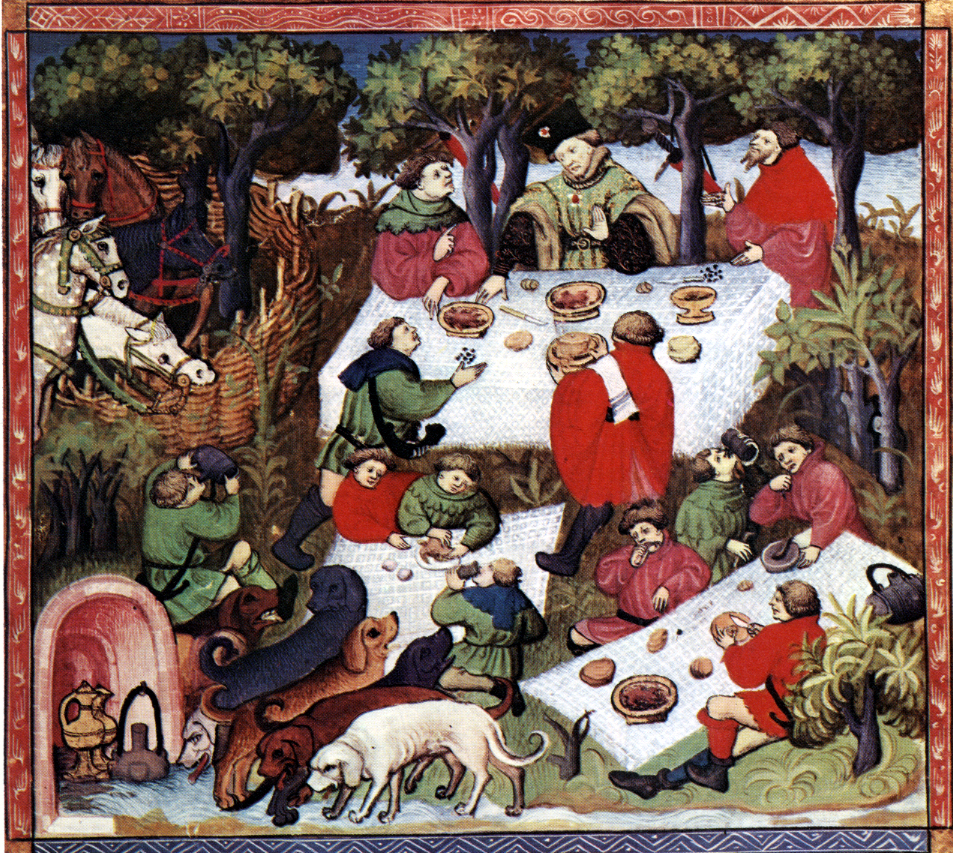 Gaston III’s The Book of Hunt formalized the hunter’s assemblée as the model for a meal during a hunt. It is not a picnic. Gaston did not intend this gathering as a luncheon but as an early morning meeting during which the day’s hunt was discussed...
Gaston III’s The Book of Hunt formalized the hunter’s assemblée as the model for a meal during a hunt. It is not a picnic. Gaston did not intend this gathering as a luncheon but as an early morning meeting during which the day’s hunt was discussed...
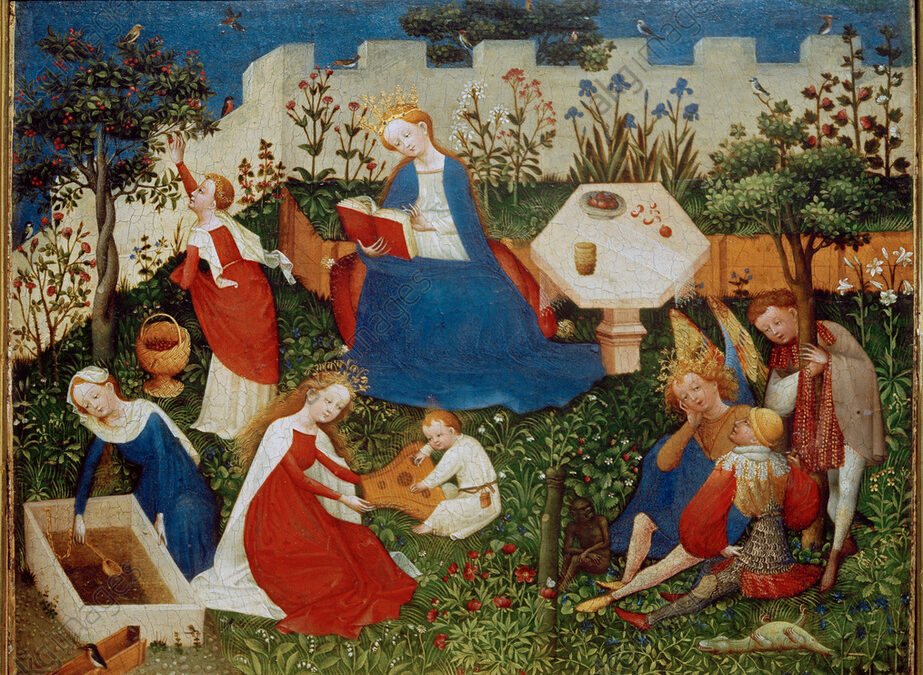 The Garden of Paradise recasts in a contemporary Hortus Conclusus as an allegory of life before the Fall. Tucked into a protected garden, free from original sin, homage the Virgin Mary and the baby Jesus are at ease. The secluded garden offers serenity in a busy...
The Garden of Paradise recasts in a contemporary Hortus Conclusus as an allegory of life before the Fall. Tucked into a protected garden, free from original sin, homage the Virgin Mary and the baby Jesus are at ease. The secluded garden offers serenity in a busy...
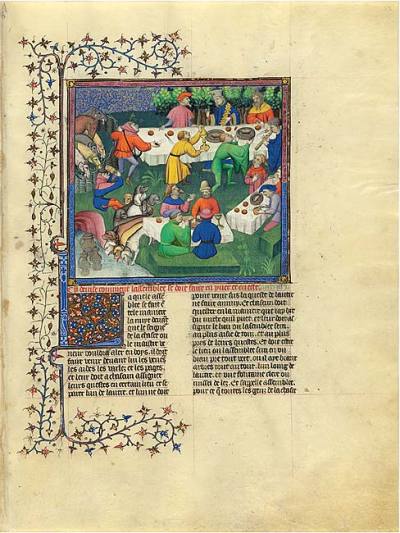 When Edward Langley, 2nd Duke of York, translated Gaston’s Le livre de chasse (1389) into English, French was still the language of the Court and elsewhere. He renamed it The Master of Game.* Like Chaucer, Edward’s translation decided to write in English...
When Edward Langley, 2nd Duke of York, translated Gaston’s Le livre de chasse (1389) into English, French was still the language of the Court and elsewhere. He renamed it The Master of Game.* Like Chaucer, Edward’s translation decided to write in English...
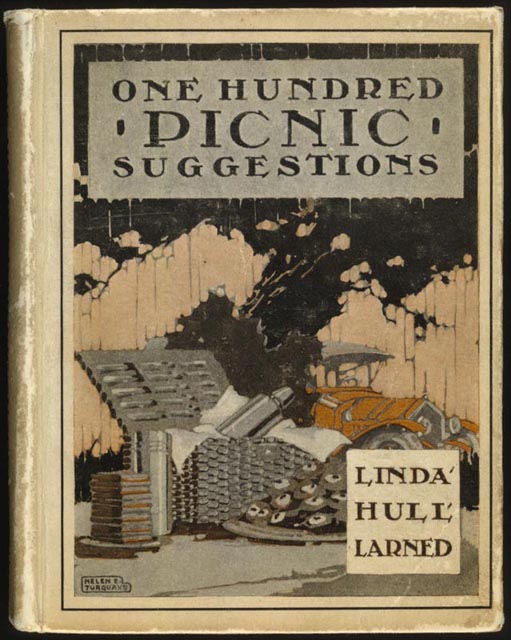 Larned’s recipe for a picnic staple: Chicken Salad “Cook chicken in boiling water, when half done add salt, a slice each of salt pork, lemon, and onion, a bit of bay leaf, and a piece of red pepper. Cool in the stock, drain, and cut in cubes. Cover them...
Larned’s recipe for a picnic staple: Chicken Salad “Cook chicken in boiling water, when half done add salt, a slice each of salt pork, lemon, and onion, a bit of bay leaf, and a piece of red pepper. Cool in the stock, drain, and cut in cubes. Cover them...
 In The Lives of the Painters, Vasari offers Piero as a preternaturally gloomy man. “As he discoursed,” Vasari says, “he would twist everything to the strangest meanings ever heard.” Why else would an artist paint a wedding picnic dinner ending...
In The Lives of the Painters, Vasari offers Piero as a preternaturally gloomy man. “As he discoursed,” Vasari says, “he would twist everything to the strangest meanings ever heard.” Why else would an artist paint a wedding picnic dinner ending...
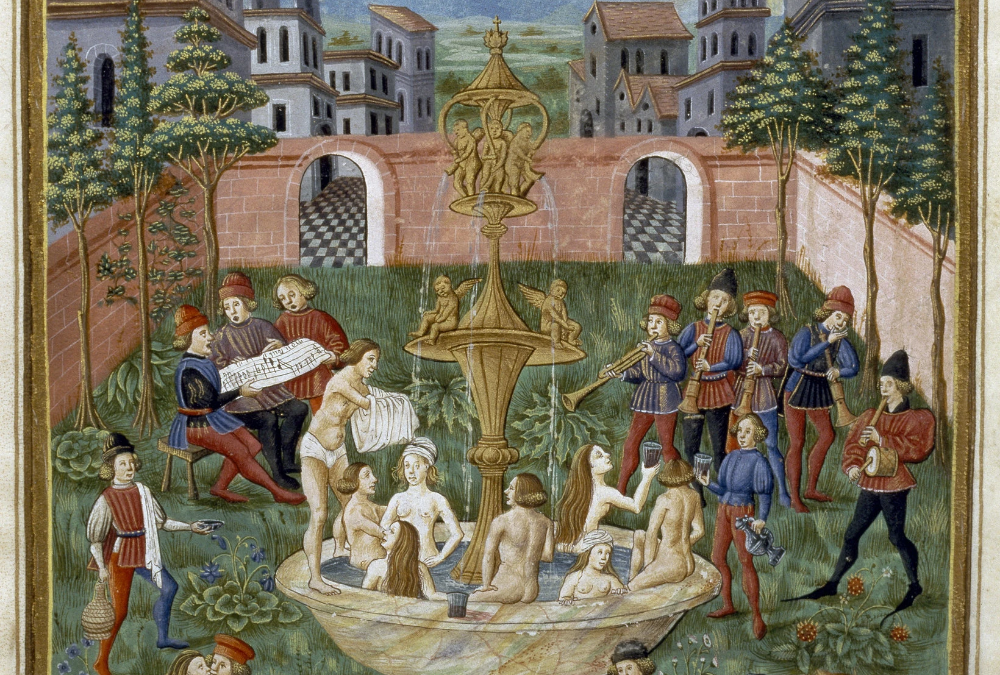 De Predis’ Venus: The garden of delights representing the joyful influence Venus exerts on mortals is an illustration for The Sphere of the Cosmos, De Sphaerae (1466 or later). The original treatise dating from 1230c describes Venus’ feast day celebrated when Venus...
De Predis’ Venus: The garden of delights representing the joyful influence Venus exerts on mortals is an illustration for The Sphere of the Cosmos, De Sphaerae (1466 or later). The original treatise dating from 1230c describes Venus’ feast day celebrated when Venus...
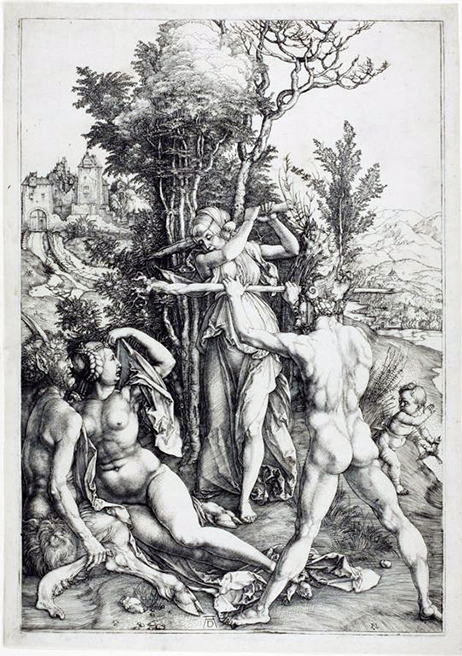 Xenophon’s Memorabilia of Socrates (371BCE) tells that when Hercules was approaching manhood, he was given a choice of a life of pleasure or a life of Virtue. While sitting at a crossroads and considering his future, he is approached by two immortal women, Virtue, in...
Xenophon’s Memorabilia of Socrates (371BCE) tells that when Hercules was approaching manhood, he was given a choice of a life of pleasure or a life of Virtue. While sitting at a crossroads and considering his future, he is approached by two immortal women, Virtue, in...
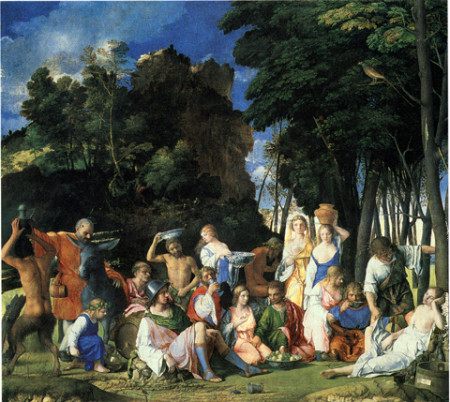 When Alfonso d’Este, the Duke of Ferrara, and his wife Lucrezia Borgia, asked for a painting expressing worldly delights, drinking, and sensuality, Giovanni Bellini could not refuse the offer though he was eighty-five and in failing health. The Feast of the Gods...
When Alfonso d’Este, the Duke of Ferrara, and his wife Lucrezia Borgia, asked for a painting expressing worldly delights, drinking, and sensuality, Giovanni Bellini could not refuse the offer though he was eighty-five and in failing health. The Feast of the Gods...
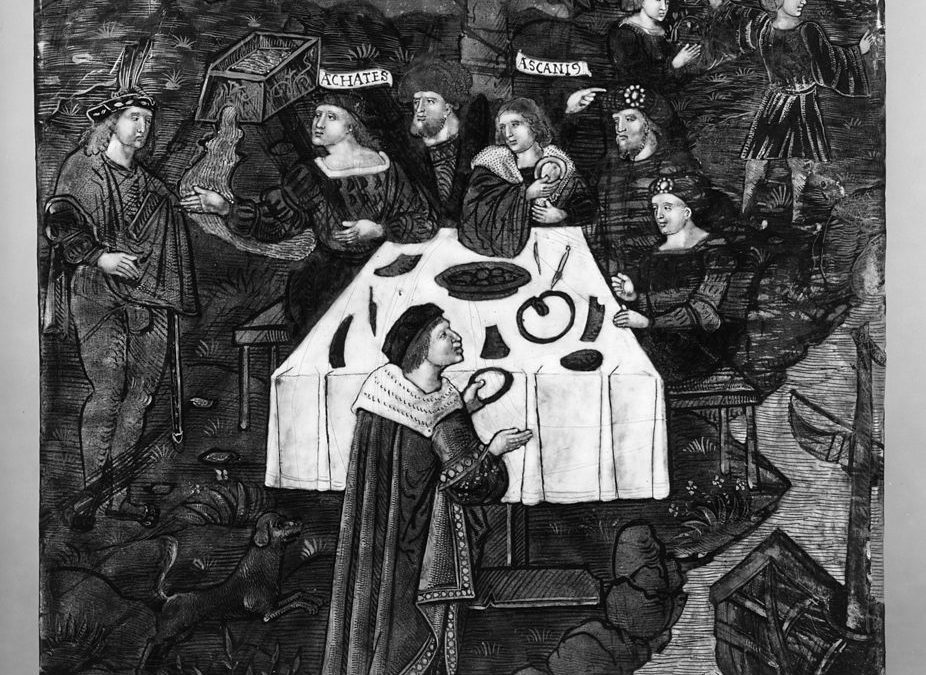 Brant illustrates Aeneas and his crew a regular luncheon meal set at a table. Aeneas sits in a chair (left), listening to his son Ascanius say, “See, we devour the plates which we fed.” See Sebastian Brant. Works of Virgil [Publius Vergilius Maronis...
Brant illustrates Aeneas and his crew a regular luncheon meal set at a table. Aeneas sits in a chair (left), listening to his son Ascanius say, “See, we devour the plates which we fed.” See Sebastian Brant. Works of Virgil [Publius Vergilius Maronis...
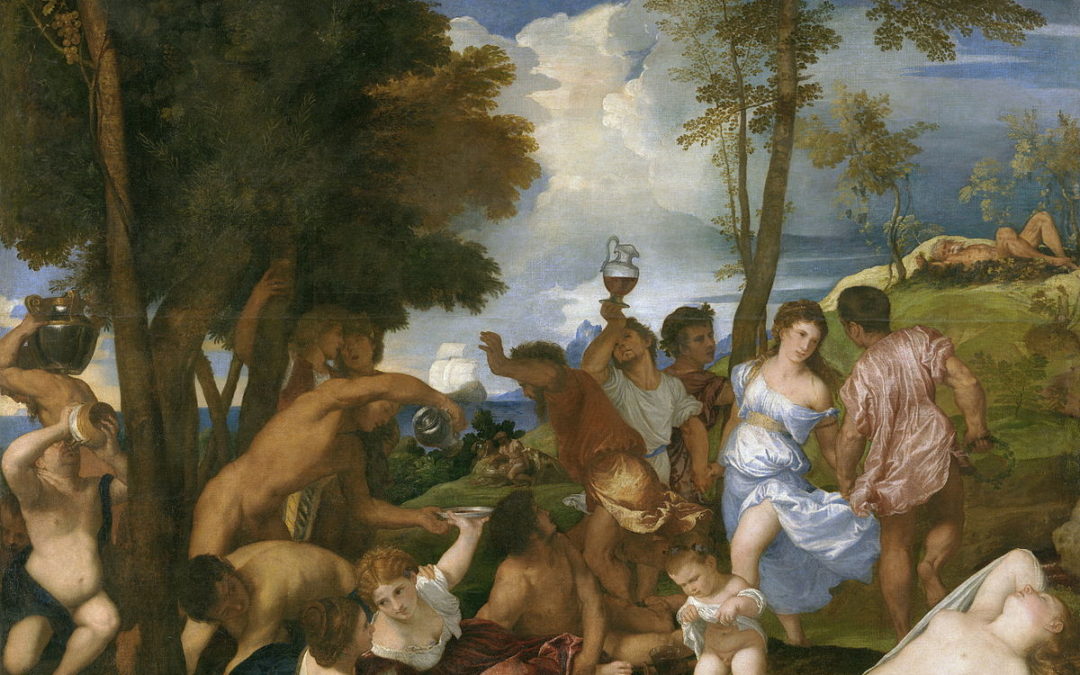 Titian’s The Bacchanal of the Andrians has the appearance of a picnic devoted to drinking. Sometimes called The Stream of Wine on the Island of Andros, it relates the miracle in which spring water is transformed into wine. In the foreground, the legend on the sheet...
Titian’s The Bacchanal of the Andrians has the appearance of a picnic devoted to drinking. Sometimes called The Stream of Wine on the Island of Andros, it relates the miracle in which spring water is transformed into wine. In the foreground, the legend on the sheet...











